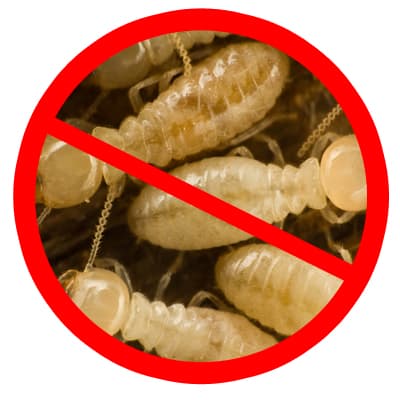You can anticipate paying between R500 and R1500 for a total termite examination. You might find yourself paying based on the size of your house and the degree of the examination. If they need to utilize specialised devices, you might pay an extra cost. Let us connect you with a vetted Pest Control Specialist in your area.
How much does termite evaluation cost?
You can expect to pay between R500 and R1500 for a comprehensive termite inspection. The cost may vary depending on the size of your home and the extent of the inspection required. If specialized equipment is needed, there might be an additional charge.
The cost of extermination will also vary, influenced by the size of your property and the severity of the infestation. Additionally, the type of products used for eliminating termites and any necessary follow-up treatments will affect the final cost.
What are Termites and How Do They Enter Your House?
Termites are small insects that feed on wood and other materials in homes. They live in large colonies, so finding just one termite often means there’s a significant infestation. Termites are drawn to the moisture in wood and usually enter homes through cracks in the foundation.
Signs You Might Have Termites:
- Sounds: You may hear termites making clicking and crunching noises as they chew through wood. These sounds can often be heard from inside the house or by pressing your ear against the walls.
- Visible Signs: Finding termite droppings, discarded wings, or flying termites are strong indicators of an infestation.
- Mud Tubes: Termites build protective tunnels from soil and debris on the exteriors of buildings. Spotting these can signal their presence.
- Structural Damage: Damage to wood elements, including windows and doors, could mean termites are at work.
How to Prepare for a Termite Inspection
Preparing for an inspection can help ensure that the process is thorough and efficient.
- Clear the Walls: Move furniture away from walls to give inspectors clear access. It’s best to do this before they arrive, to save time during the inspection.
- Clear Moist Areas: Remove any items from moist areas around sinks, pipes, and in bathrooms and kitchens to allow easy inspection.
- Trim Vegetation: Cut back any dense plants around your house and against exterior walls to make these areas more accessible.
- Ensure Access: Make sure inspectors can easily access your garage, roof, and any attics or basements.
By following these steps, you can help the inspection team effectively assess your home for termites.
How to Avoid Termite Problems
Taking proactive measures to prevent termite infestations is crucial. Here are some effective steps you can take:
- Remove Excess Wood: Keep firewood and any surplus wooden materials away from your home’s structure to minimize the risk of attracting termites. Ensure any wood stored inside is dry and well-maintained to prevent it from becoming an inviting target for termites.
- Install Termite Barriers: Creating physical or chemical barriers around your home can significantly reduce the likelihood of a termite infestation. These barriers can be costly, depending on your home’s size and structure, so consulting with a professional termite exterminator for an estimate and advice is advisable.
- Maintain and Repair Your Home: Address any damages to your roofing, piping, or walls promptly. Termites are drawn to moisture, so keeping your home dry and well-maintained is key to preventing an infestation. Book your leak detection today.
How to Proceed When You Think You Have Termites
If you suspect a termite presence in your home, acting swiftly is essential. Here’s what you should do:
- Confirm the Infestation: Look for signs of termites, such as mud tubes, damaged wood, or visible termites themselves.
- Contact Professionals: It’s crucial to get a professional assessment to confirm any infestation and discuss treatment options. Get Pest Control is renowned for their excellent service.
- Get a Professional Inspection: Arrange for a thorough termite inspection. A qualified inspector can assess the extent of the problem and recommend the appropriate treatment.
- Discuss Treatment Options: Depending on the severity of the infestation, treatment might include chemical applications, bait systems, or physical barriers. Discuss these options with your chosen expert to understand the benefits and potential impacts of each.
- Regular Monitoring and Maintenance: After treatment, regular checks are vital to ensure termites do not return. Set up a schedule with your pest control professional to monitor your property regularly.
By following these steps, you can address a termite issue effectively and help protect your home from future problems. Don’t hesitate to seek help from qualified professionals to guide you through the process.

